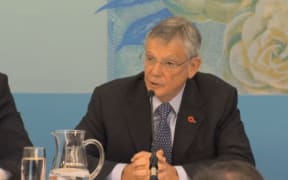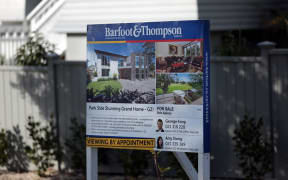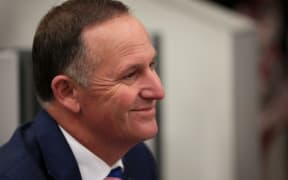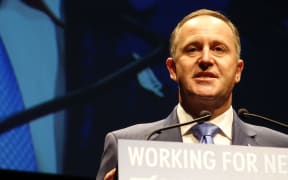The Green Party is pushing for the Reserve Bank to set interest rates by committee after what it says is repeated failures over the past four years.
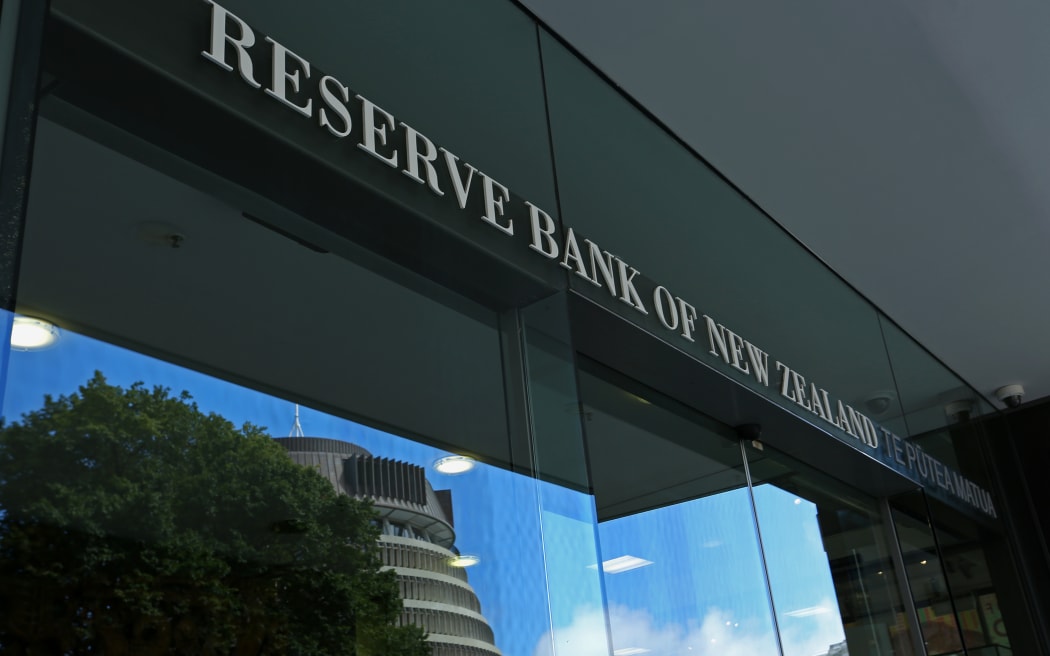
Reserve Bank of New Zealand Photo: RNZ / Alexander Robertson
Greens co-leader James Shaw said interest rates had been artificially high because the bank had consistently over-estimated how fast prices would rise.
Mr Shaw said keeping interest rates higher than they should be suppressed business activity and meant unemployment was higher than it needed to be.
He said leaving the decision on setting rates solely in the hands of the Reserve Bank governor was wrong.
"We are the only country where a single person, and that is the governor of the Reserve Bank, makes the decision around interest rates.
"In most other countries it's made by a board and the evidence shows that they tend to make better decisions about, you know, about how to set interest rates," Mr Shaw said.
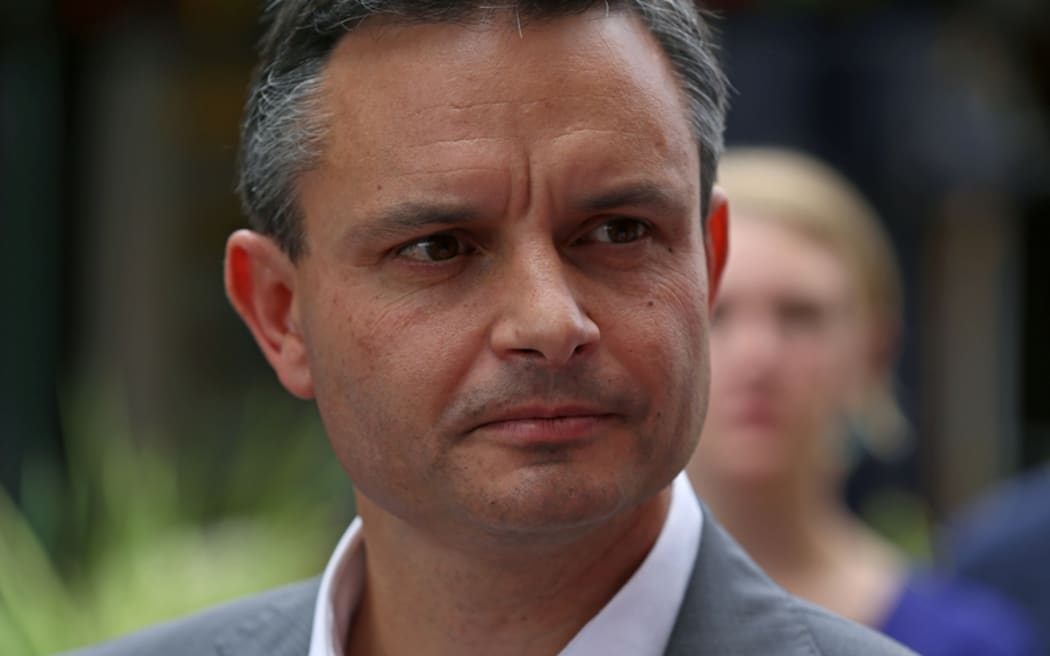
Greens co-leader James Shaw Photo: RNZ / Alexander Robertson
The Government does not have any plans to change the way the Reserve Bank operates but Finance Minister Bill English does not dismiss the idea.
"There's a legitimate argument about contesting the Reserve Bank Governor's decision. We certainly don't deny that.
"As he often points out, they have to assess the costs of being wrong. Is there ... a higher cost from having interest rates too high or having them too low," he said.
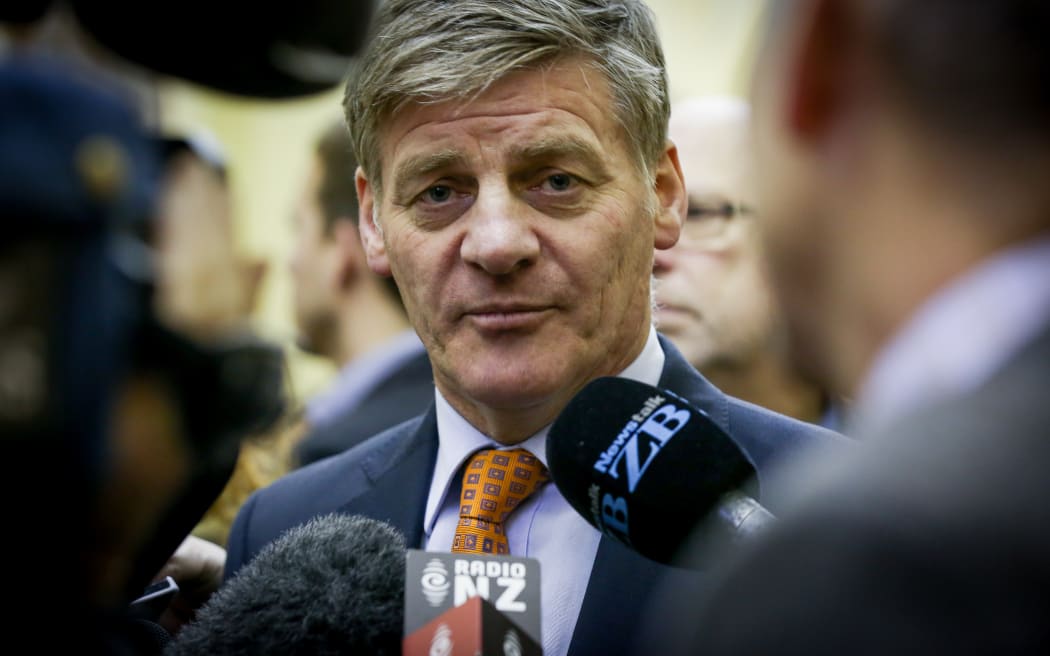
Finance Minister Bill English (file) Photo: RNZ / Alexander Robertson
Mr English conceded the bank had not met the targets set in its agreement with the Government.
Labour Party finance spokesperson Grant Robertson agreed interest rates had been too high, but pointed out the Reserve Bank was not the only central bank in the world to have got it wrong.
"They are consistent with the forecasts from central banks around the world, so they are not out of step in that regard but I do think it is obviously true that inflation has not met those expectations and that's part of the reason why interest rates have been higher," he said.
Mr Shaw agreed the bank could not get its forecasts of inflation right all the time.
"There is no such thing as a perfect forecast, but the evidence that we've got shows that they have been over-estimating the rate of inflation far more times than they have been under-estimating the rate of inflation," he said.
Rather than having interest rate decisions made by committee, Grant Robertson would prefer the Government's policy targets agreement with the bank to be more flexible.
"We believe that there is a range of factors that can be taken into account about the overall health of the economy.
"Of course we want to see inflation controlled, but at the moment if you're outside of an agreement for an extended period, what's the point in having that particular agreement?" Mr Robertson said.
Mr English did not rule out a discussion about that either.
"The issue of the mandate and how decisions are made I suppose could be re-argued in the context of a different world than where it used to be argued," he said.
Previously the bank would be getting told off when inflation was a real pressure and people thought you shouldn't worry so much about inflation being high. "Well, now, they get criticised for not worrying enough about inflation being low."
Mr English said at the moment the Reserve Bank appeared to be facing a unique set of circumstances which were keeping inflation much lower than previously.
